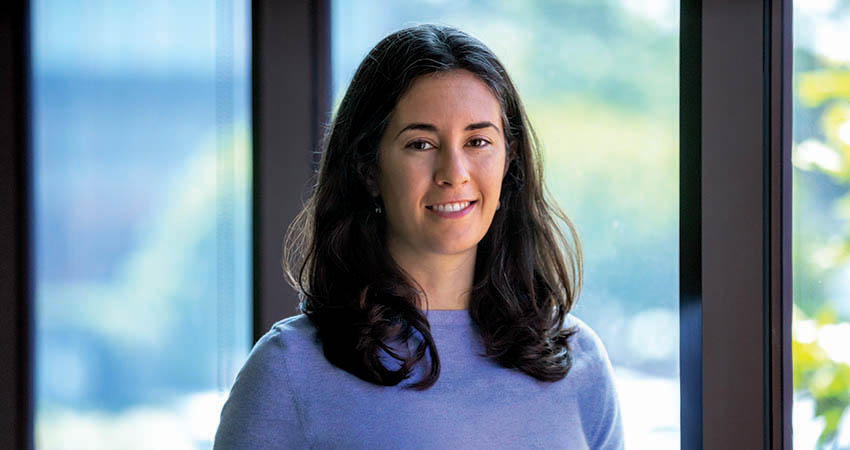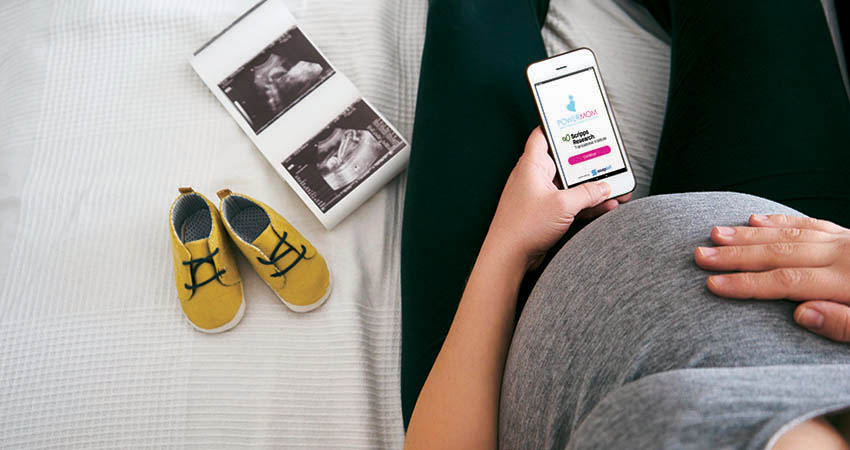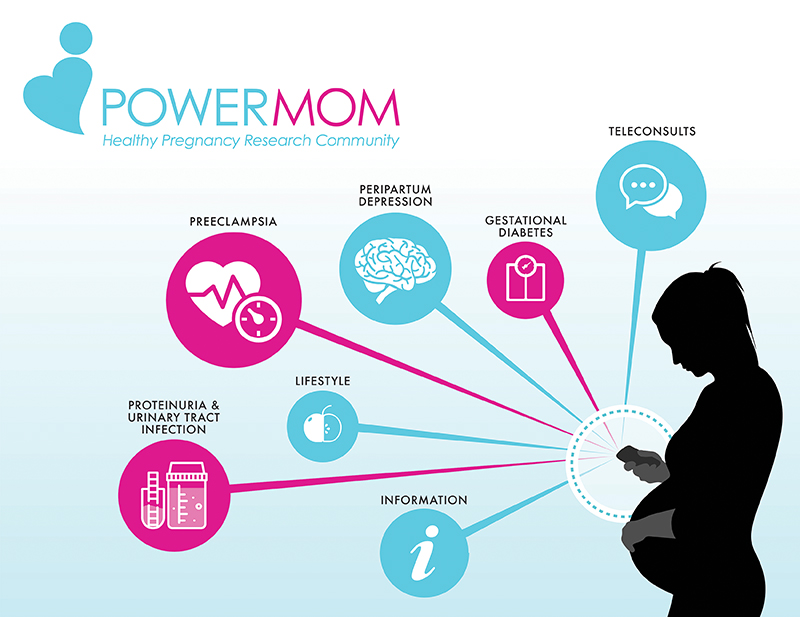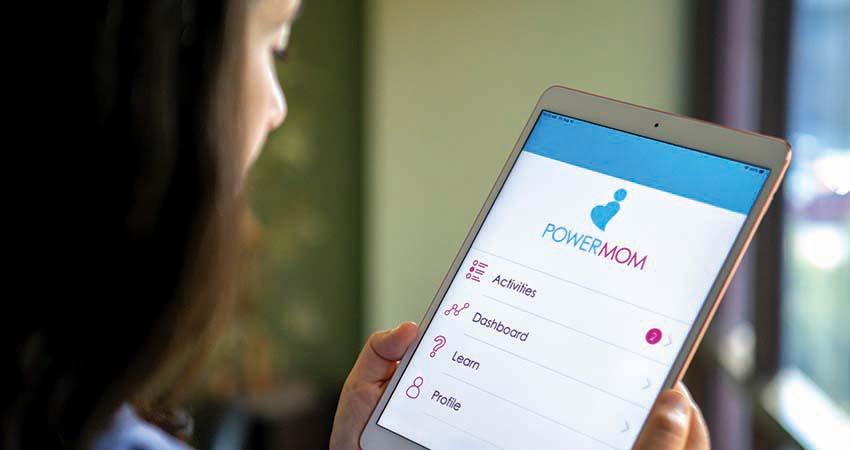How a smartphone app is transforming pregnancy research
In the United States, spending on hospital-based maternity care surpasses that of any other country. Yet, the rates of maternal morbidity and mortality are rising here, even as other areas of the world see marked improvements.

Scripps Research epidemiologist Jennifer Radin, PhD, is trying to change this. She and her colleagues at the Scripps Research Translational Institute recently launched a digital research platform called POWERMOM, which is collecting pregnancy-related health data from women all over the country to better understand what factors contribute to healthy pregnancies.
Radin’s goal is to build the largest maternal health research community in the world, with an emphasis on addressing the current lack of diversity in pregnancy research. Here, she explains how POWERMOM came to be—and how it’s overcoming the barriers of traditional medical studies to find answers that change lives.

What drew you to maternal health research?
It started on a personal level. When I was pregnant, I had so many questions: How much weight did women like me typically gain? Were my leg cramps and lack of sleep in the last trimester normal? What was the optimal amount of exercise? Should I stop taking certain medications?
Some questions I could ask friends or doctors. But I quickly learned that not all of my friends experienced the same things as me, and that today’s pregnancy guidelines are filled with generalizations and research gaps.
After talking with colleagues who are experts in bioinformatics and digital medicine, I realized that we could begin to answer some important questions by crowdsourcing information on a large scale directly from pregnant women; we could do it via a mobile app they install on their smartphone. Importantly, this approach would also allow us to return useful information to study participants.
Why does an app-based study make sense for pregnant women, in particular?
Pregnant women are inherently curious about their health. They want to understand what’s normal and how they can keep themselves and their developing baby healthy. Increasingly, they’re turning to apps to find this information and using sensors to track and monitor their health. We’re tapping into this wealth of information.
We also considered that pregnant women have historically been underrepresented in biomedical research due in large part to fear of harming the fetus, but also because of the hassles of being in a trial. By leveraging wireless sensors and apps, we can collect detailed data on a frequent basis without requiring in-person clinic visits. Pregnant women only need a smartphone or internet access to participate. The convenience factor is huge.

What questions do you hope to address with the data you collect through POWERMOM?
The app collects lots of different survey and sensor data so there are many questions that we can delve into. For example, we’re looking at weight gain by race, age, height and number of previous pregnancies. We’re gathering information on the most commonly taken prescribed and over-the-counter medications and supplements. We also want to learn the average amount of sleep that pregnant women get, and how sleep during pregnancy is related to health outcomes.
With every new piece of data, we move closer to building a database of unprecedented size and depth, and fundamentally changing pregnancy research and knowledge.

A pilot study conducted by our researchers enrolled over 4,000 participants from all 50 states via a Research Kit iOS app, with 15% of participants being from rural zip codes, 13% being African American and 4% being over 40 years old.
- Nearly 4 million women in the U.S. give birth every year
- 55% of pregnant women are using an app related to pregnancy, birth and/or child care
- 60% of the global population will be mobile internet users by 2020
- More than 7% of all mobile health apps are focused on women’s health and pregnancy